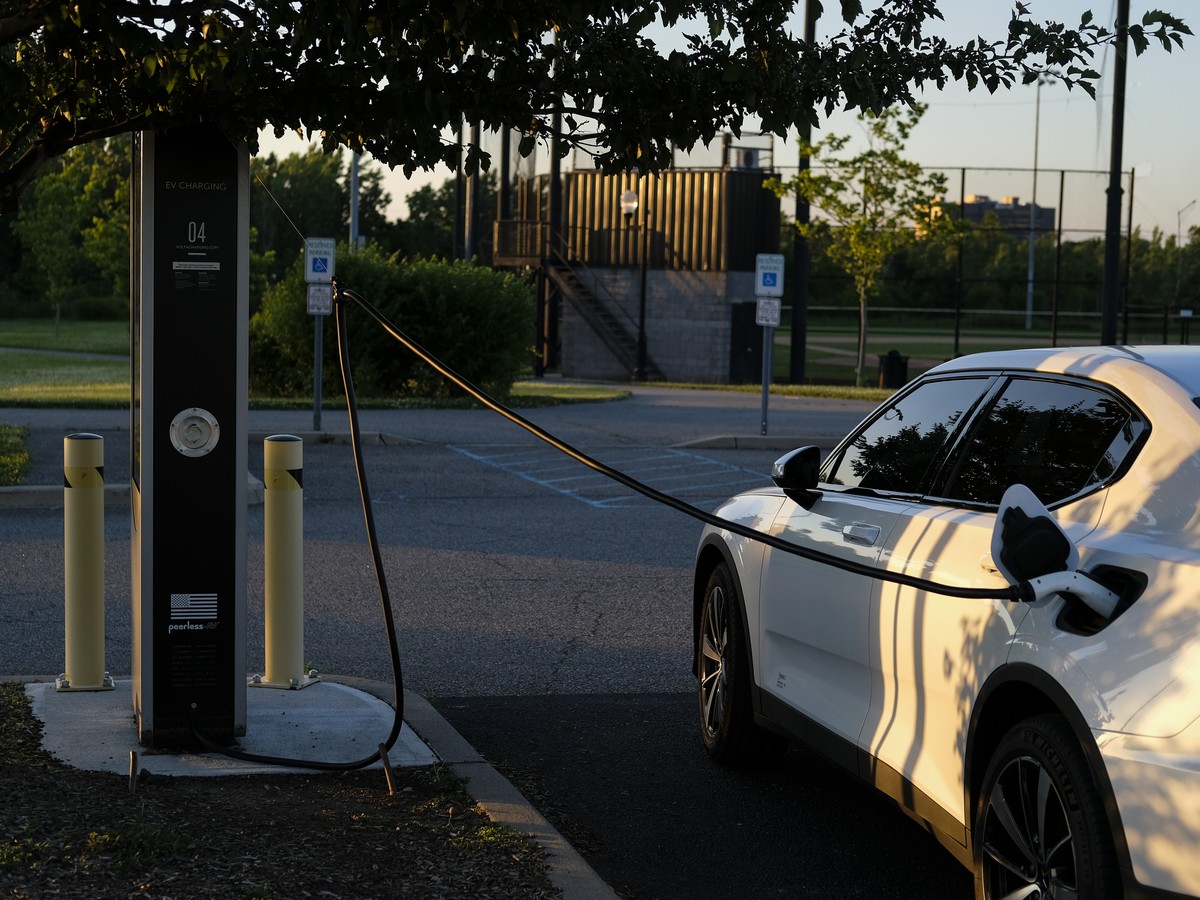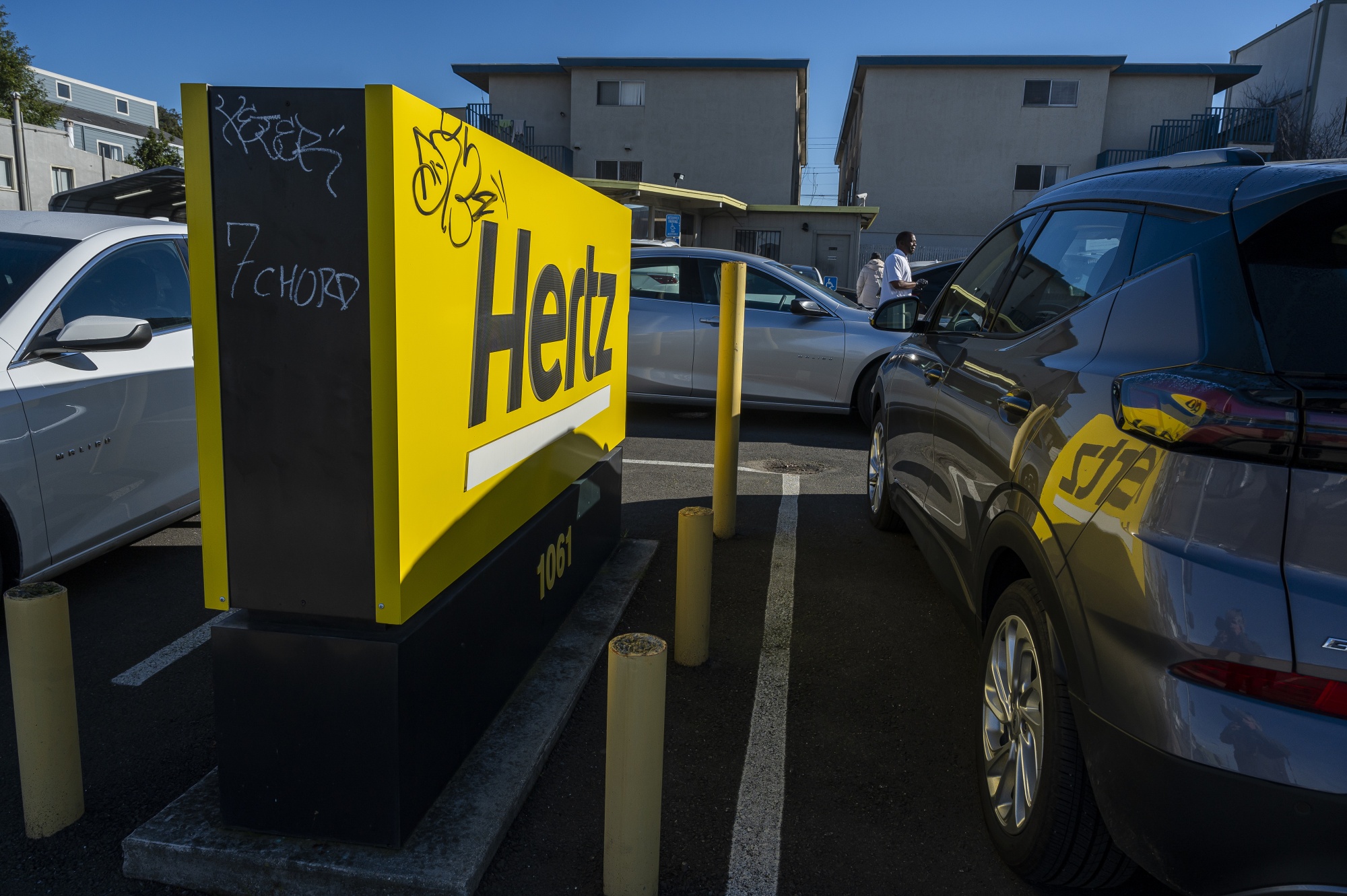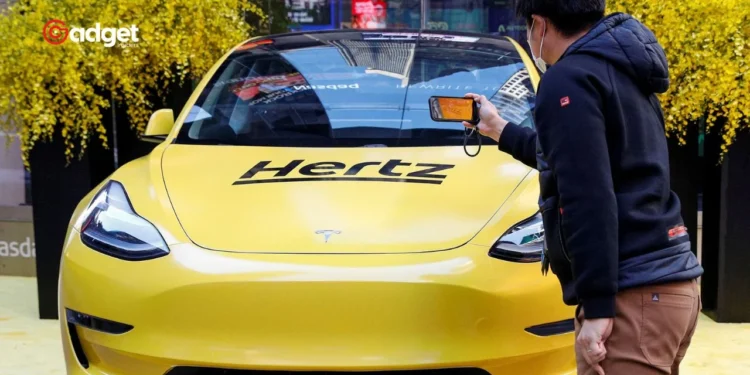Hertz, a major player in the vehicle rental industry, has encountered a peculiar problem with its electric vehicle (EV) rental program. Despite the environmental and technological advancements EVs represent, Hertz’s transition to electric hasn’t been smooth.
Recent reports suggest that the rental giant has been mistakenly billing customers for gasoline, even though the vehicles rented were electric models like the Tesla Model 3, which run on battery power.

One notable incident involved a customer being charged a whopping $277.39 for gasoline on a Tesla Model 3 that, by its very nature, does not use gas. The situation was only rectified after significant media coverage, highlighting a systemic issue rather than an isolated mistake.
Systemic Issues and Customer Frustrations
This isn’t a one-off error. Other customers have shared similar experiences, indicating a recurring problem. A Hertz representative admitted that these erroneous charges were due to a “systems error” and assured that the issue had been resolved. The company also claimed to have proactively reached out to affected customers, offering refunds and credits for future EV rentals as compensation.
Despite these assurances, the frequency of these incidents paints a troubling picture of Hertz’s handling of its EV rental program. Customers like Evan and Toan Le have voiced their frustrations, recounting how they were overcharged and how challenging it was to correct these errors with Hertz’s customer service.
Evan experienced a downgrade from a long-range to a standard-range Tesla without proper compensation and was later erroneously charged a $340.97 “Skip the Pump” fee. It took public complaints for Hertz to address his issue. Similarly, Toan Le faced a baffling $690.32 charge, including a $475.19 fuel charge for an all-electric Tesla, highlighting repeated failures in Hertz’s billing practices for EVs.
The Broader Impact on Customer Trust
These billing discrepancies have broader implications for Hertz’s business, potentially affecting customer trust and the company’s reputation in the burgeoning EV rental market. As EV adoption grows, rental companies play a pivotal role in shaping public perception and acceptance of electric vehicles. Missteps like these not only inconvenience customers but also hinder the broader transition to sustainable transportation options.

Hertz’s Response and Future Steps
In response to the backlash, the EV car rental company has taken steps to rectify the identified system errors and improve its customer service response to such issues. However, for many customers like Toan Le, who has reached the top tier of Hertz’s loyalty program, the experience has left a lasting negative impression, prompting them to reconsider their future rental choices.
As the company aims to solidify its position in the EV rental market, it will need to ensure such errors are eliminated and that customer service can handle issues efficiently to restore and maintain consumer confidence. The road ahead will require rigorous attention to detail and a commitment to customer satisfaction to overcome the current skepticism surrounding its EV rental practices.

In the world of EV rentals, transparency, reliability, and responsive customer service will be key to winning over consumers who are still adjusting to the new dynamics of electric mobility. Hertz’s ability to learn from these missteps and genuinely rectify them will determine its future success in this innovative market segment.










